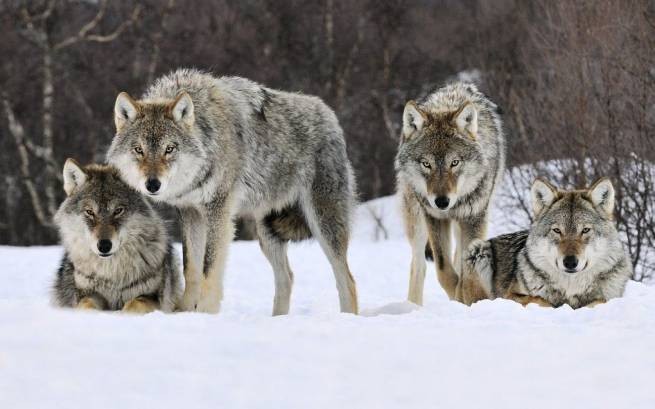In Western Phthiotis, wolves began to regularly visit villages in search of food, the situation got out of control.
According to local residents, wolves are multiplying quickly, and now every week they visit populated areas, attacking domestic animals – sheep, cows, goats. People are afraid that at some point hungry animals may attack humans:
“We don’t know where to hide. Currently, wolves find and eat sheep, cows and goats. What if they get hungry? Will they attack people?”
Residents of Kyriakochori in Western Phthiotis see predators once or twice a week, and in the village of Anavra in Magnesia people hear wolf howls every day. Residents of many other settlements talk about the same thing. Livestock farmers talk about packs of wolves; we are talking about seven or eight “communities” of predators just in the area of the village of Eleftherochori. Aggeliki Papaioannou, who has been counting losses lately and searching for her animals in difficult areas, says:
“What we see this year we have not seen in our entire lives. Packs of wolves kill large free-ranging cows weighing up to 300 kg each. More than 10 animals have been eaten in the area in the last month alone. Some return wounded after fighting predators.”
“If the situation continues, if wolf packs are not controlled, free-ranging cattle will disappear,” says Vasiliki Papaioannou, who has a herd of cows in Kallidromos. The situation is the same in Evrytania, all the way to distant Agrafa.
Requests for compensation received by ΕΛΓΑ are varied, but according to Dionysi Kyriopoulos, “It is a complex process as we need to find the killed animals in the steep mountains within 48 hours, find the hooves and hand them over. This is unlikely, so there is no compensation, and this makes breeders desperate.”
It is worth recalling that the entire territory of Phthiotis is located below the 39th parallel, where absolute protection of wolves has been introduced, since in previous years they were under threat of extinction. But pastoralists and mountaineers speak directly of “overpopulation that has crossed the line.” What do scientists who observe evolution say? They have the opposite opinion:
“The fact that some residents of mountain villages see wolves more often near their villages does not mean that we have an overpopulation. After all, there are between 700 and 1,000 wolves nationally,” says Arctouros public relations manager Panagiotis Stefanos. He also notes writes CNN Greece that “there are no specific figures for the number of wolves in the region of Phthiotis and Evrytania, since they are moving from region to region.”







More Stories
Black swan in the Evros river delta
The weather will turn bad on Good Friday
Crete "shaking" – two earthquakes this morning